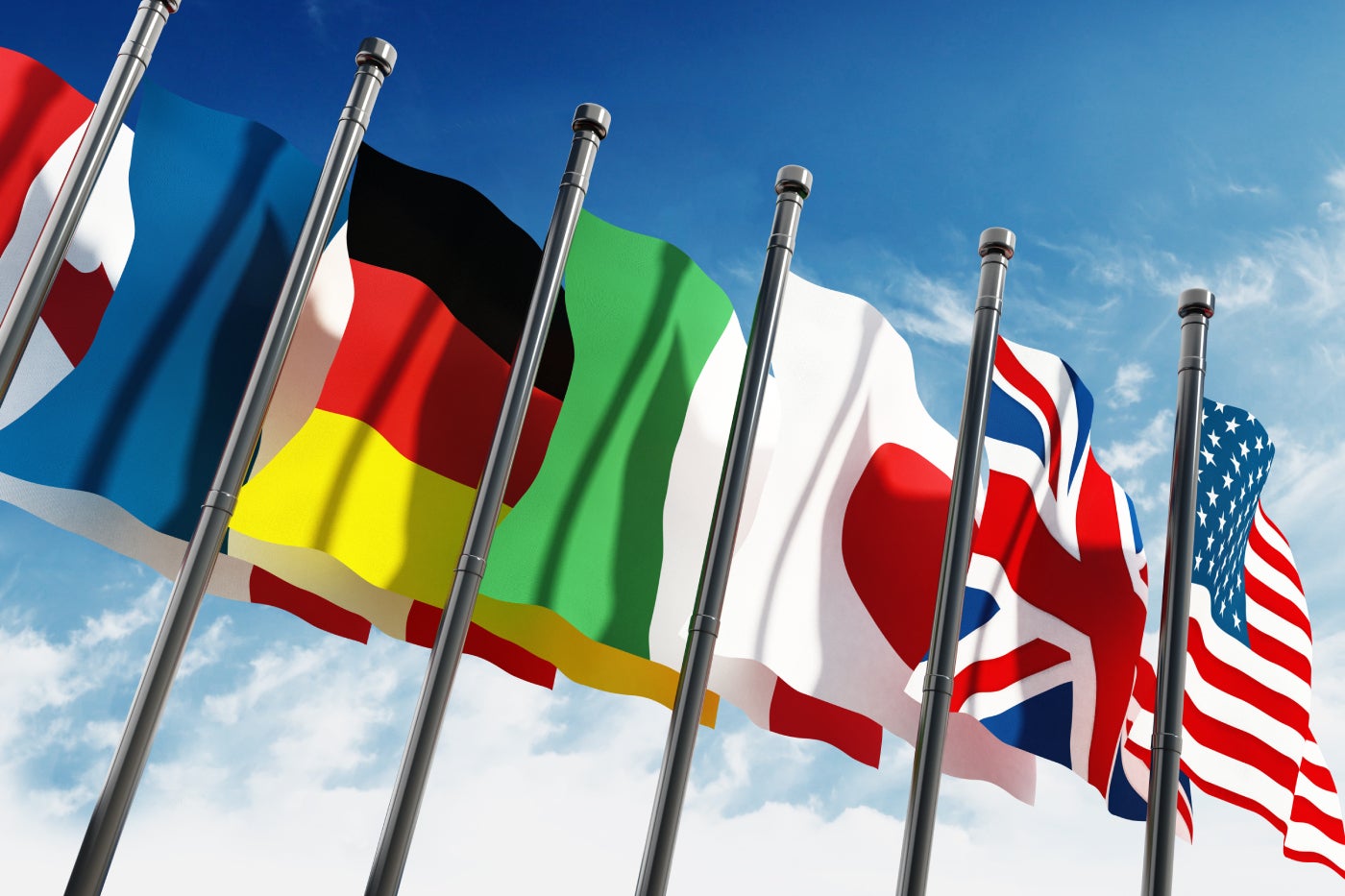The Group of Seven nations have signed an agreement committing to explore how artificial intelligence can improve public services and boost economic growth.
The Ministerial Declaration, signed March 15, will see Canada, France, Germany, Italy, Japan, the U.K. and the U.S. work together to create policies and recommendations on deploying “safe and trustworthy” AI across various industry sectors. These will be informed by a report exploring businesses’ uses of AI, which will be published by the end of 2024.
The agreement also covers the joint development of an AI toolkit to inform policy-making and ensure AI used public sector services are safe and trustworthy.
The Ministerial Declaration: What you need to know
The Ministerial Declaration is a commitment by G7 nations to collectively explore economically advantageous ways of using AI. Part of this includes looking at how AI can be used to create public services that are “tailored to citizens’ needs and expectations.”
The agreement also seeks to understand AI’s role in the workplace, specifically in boosting productivity and economic competitiveness across health, education, manufacturing, public administration and other sectors.
To steer best practice, G7 nations will develop an AI toolkit to “help the public sector and, where relevant, other stakeholders, translate principles for safe, secure, and trustworthy AI into actionable policies, recognising opportunities and risks.”
SEE: Global powers are making a pledge to AI safety.
The toolkit will “act as a snapshot to further help assess AI’s relevance in the public sector, including for specific domains (and) may also explore mechanisms to encourage, as appropriate, the role of relevant public sector data to support governments developing safe, secure, and trustworthy AI,” according to the declaration.
The Ministerial Declaration was signed on the second and final day of the G7’s Industry Tech and Digital meeting, which took place in the cities of Verona and Trento, Italy, on Mar 14–15. It builds on the voluntary AI Code of Conduct signed by G7 nations in October 2023.
Joint report to deepen understanding of AI in business
In an effort to understand the opportunities for economic growth presented by AI, the G7 nations will jointly develop a report exploring the factors behind AI adoption among businesses in participating countries.
This will involve collecting and analysing AI policy strategies in micro, small and medium-sized enterprises to “identify best practices and develop knowledge repositories, with case studies and lessons learned.” The report will also seek to identify barriers to AI adoption.
The Ministerial Declaration commits to publishing this report by the end of the year, with the intention to “improve the G7’s shared understanding of tech collaboration, assessing different approaches to policy and offering a set of recommendations which will support companies to successfully roll out safe and trustworthy AI.”
SEE: New AI security guidelines by NCSC, CISA & more international agencies.
Commenting on the agreement, Michelle Donelan, the U.K.’s Technology Secretary, said in a press release:
“AI is already an extraordinary force for good in our society, with vast potential to tackle some of the world’s biggest challenges. I am determined that we continue to drive forward efforts to harness the enormous potential of these emerging technologies to unlock new opportunities and turbocharge productivity.”
Calls to double growth in quantum computing
Quantum computing was another focus of the Ministerial Declaration, with G7 nations recognizing the technology’s potential for delivering breakthroughs across a variety of industry sectors.
As part of the agreement, the countries will work together to promote the development of quantum technologies and foster collaboration between academia and industry. This will include sharing technical knowledge and supporting quantum technology R&D, as well as delivering skills training to workers.
G7 nations also committed to establishing a new Point of Contact Group on semiconductors, which will help countries share best practices on the design and sustainable manufacturing of semiconductor technology.
SEE: Is quantum computing right for your business?
“The emergence of a global market for quantum technologies should include the development and appropriate adoption of technical standards, as well as pre-standardisation activities, such as benchmarking, terminology, and metrics,” the declaration states. “This may support comparison and interoperability among different quantum devices and facilitate compatibility with existing technologies.
“We encourage, where appropriate, the development and adoption of international technical standards in standards development organisations.”
Saqib Bhatti, U.K. Minister for Tech and the Digital Economy, said:
“The U.K. has long been a leading voice on the global stage for greater collaboration across Science, Innovation, and Technology. Supported by this agreement, we will continue to work shoulder-to-shoulder with our G7 partners to realise the huge benefits emerging technologies like AI and Quantum can bring.”
Recent AI activity in the UK
According to figures by the U.K. government, the U.K.’s AI sector already contributes £3.7 billion (US $4.7 billion) to the economy and employs 50,000 people across the country.
In February, the U.K. held its first AI Opportunity Forum, aimed at exploring how British businesses can adopt and benefit from AI technologies.
SEE: Impact of AI on Jobs in the U.K.
The Forum, which will be held on a bi-monthly basis, will bring business leaders together to encourage adoption of AI across the private sector, and will host representatives from the likes of Microsoft, Google, Quantexa, KPMG, Arm, Barclays, Vodafone, Universal Music Group and GSK.
In January, the U.K. government’s Central Digital and Data Office published a framework outlining principles for government departments on the responsible use of generative AI.
The framework also covers the upskilling of civil servants through training courses aimed at teaching them how to use generative AI tools like ChatGPT.


